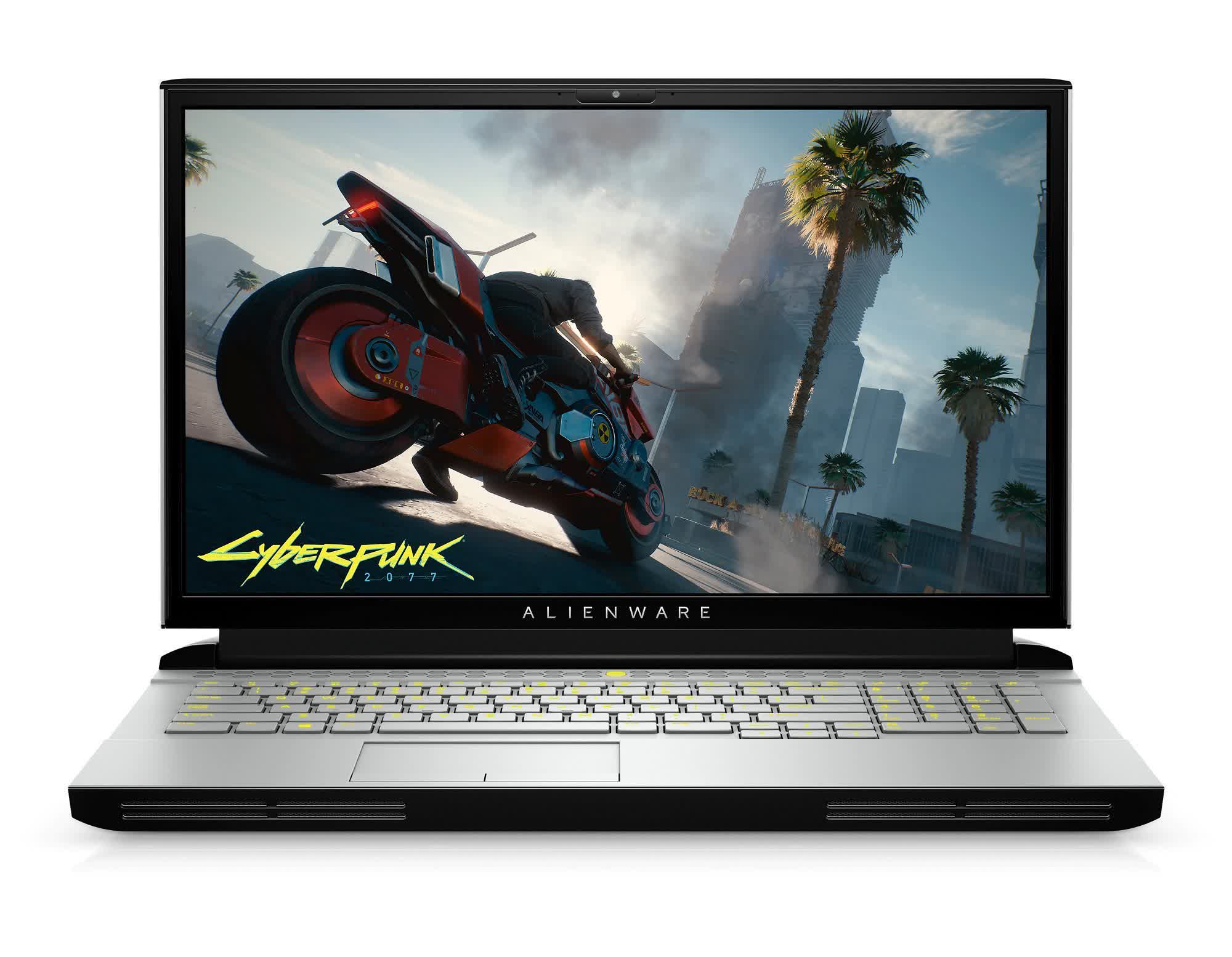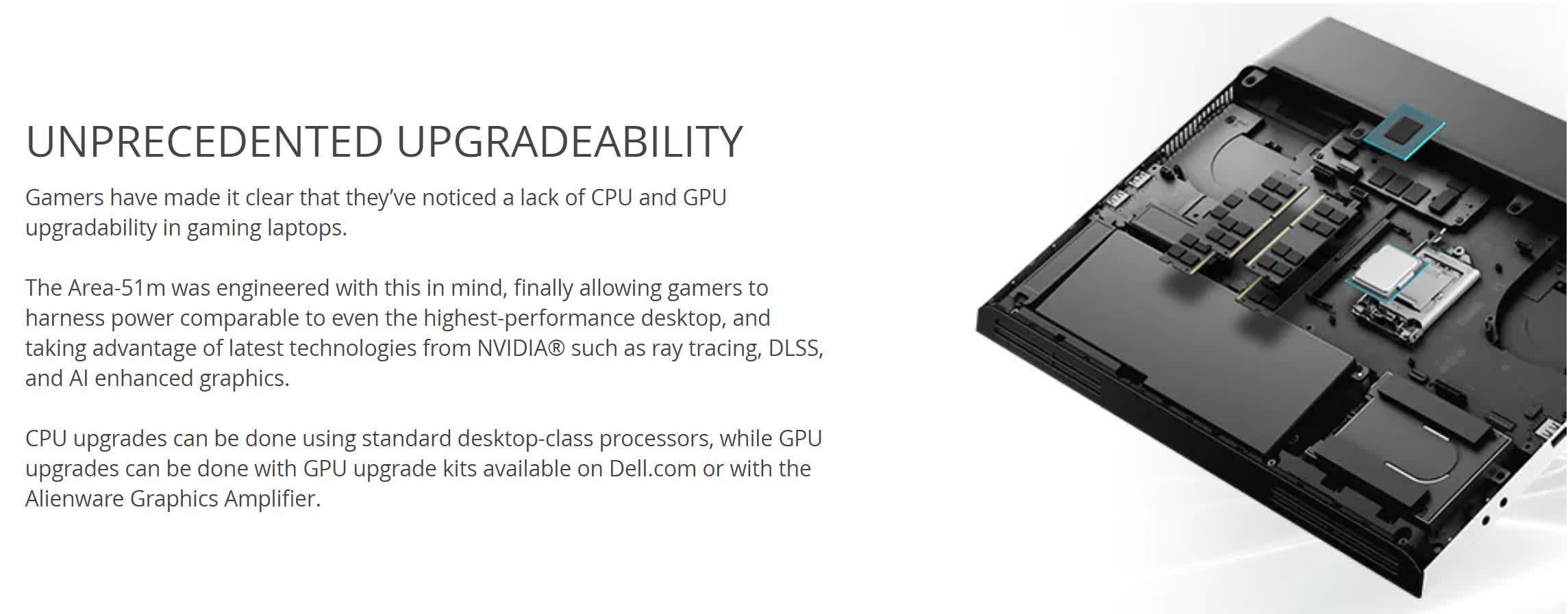In a nutshell: Dell is facing a class-action lawsuit over allegations that ads for its Alienware Area 51-m R1 "intentionally misled and deceived" buyers. The laptop is promoted as featuring unprecedented upgradeability, but San Francisco-based plaintiff Robert Felter disputes that claim.
The Alienware Area 51-m R1 received plenty of glowing reviews following its release after the CES 2019 announcement. Many praised its desktop-like ability that allows users to upgrade the components; the Intel core desktop CPU resides in an LGA1151 socket, rather than being soldiered to the motherboard like most laptops. It's also possible to upgrade the GPU using Dell's proprietary DGFF (Dell Graphics Form Factor) modules, so those who bought a GTX 1660Ti or RTX 2060, for example, could later upgrade to an RTX 2070 or RTX 2080.
That all sounds pretty good, but it's the limitations that Felter finds objectionable. Alienware did say that the laptop's CPU could be upgraded provided it used Intel's Z390 chipset, meaning no 10th gen processors or later. Additionally, there was no support for the RTX 2000 Super series GPUs.
"Dell's representations of the upgradability of the Area 51M R1 also extended to units that were equipped with the fastest, most advanced Core Components available to the market, thus creating a reasonable expectation with consumers that the upgradability of the Area 51M R1 extended to yet to be released INTEL CPUs and NVIDIA GPUs, and did in fact create such expectations with consumers," states the suit.
In May 2020, the Alienware Area 51-m R2 arrived. The refreshed laptop included support for 10th-gen Intel CPUs—but only 10th gen—and offered GPUs such as the RTX 2070 Super, RTX 2080 Super, and Radeon RX 5700M. Felter was aggrieved that he now needed to buy this laptop, or a similar-specced one, to get the latest components. If he had known the core components would last less than a year, he would not have paid the R1's $2,700 price, the suit claims.
"The Area 51M's CPU was not upgradeable to the new INTEL 10th generation CPU, nor was its GPU upgradeable to the new NVIDIA RTX SUPER 2000 series," the complaint reads. "In fact, the only way Plaintiff could own a laptop with these newly released upgraded Core Components was to spend several thousand dollars more than what an upgrade would cost to purchase the then-newly released Alienware Area 51M R2 or a similarly equipped laptop from another manufacturer."
The suit also alleges that as Dell uses Intel and Nvidia components and has its roadmaps before they're released, it knew the laptop could not be upgraded beyond a certain point.
Felter seeks to certify a regional class consisting of consumers residing in Alaska, Arizona, California, Hawaii, Idaho, Montana, Nevada, Oregon, and Washington who purchased an Alienware Area 51M R1 in 2019. He seeks damages for fraudulent misrepresentation and injunctive relief.
It's a bit of a strange one, really. Alienware did specify the Z390 chipset limitations, and it never promised the Alienware Area 51-m R1 would offer new GPU upgrades beyond those already on offer. It appears much of the case rests on the company's use of the word "unprecedented" and the release of the R2.
h/t: Tom's Hardware
https://www.techspot.com/news/89937-dell-hit-class-action-lawsuit-over-alienware-area.html

